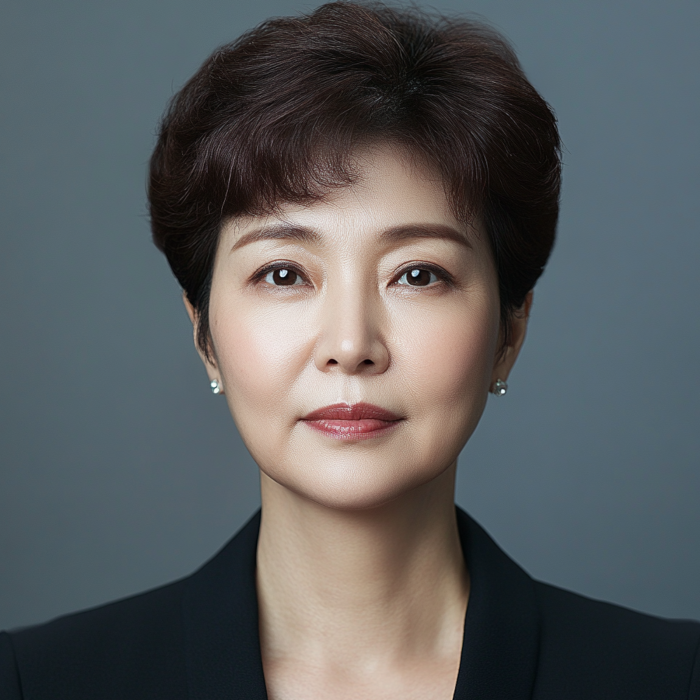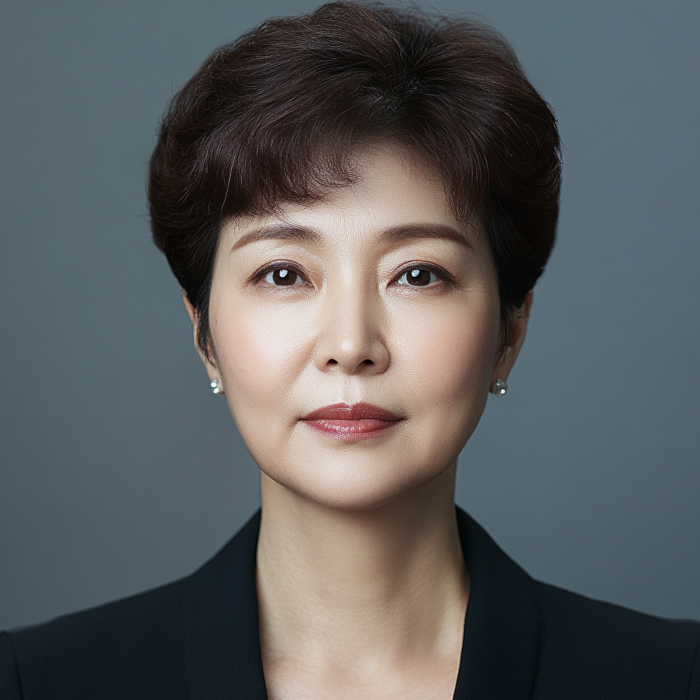


Park Geun-hye (born February 2, 1952) is a South Korean politician who served as the 11th President of South Korea from 2013 to 2017, becoming the first woman to hold that office in the country's history. Her presidency ended in scandal and impeachment, making her the first South Korean president to be removed from office by impeachment. Park is also the daughter of former South Korean President Park Chung-hee, whose authoritarian rule from 1961 to 1979 shaped much of South Korea's modern history. Her political career and fall from grace reflect both the complexities of South Korean politics and the continued significance of her family legacy.
Birth and Family Background: Park Geun-hye was born on February 2, 1952, in Daegu, South Korea, to Park Chung-hee, who became president of South Korea following a military coup in 1961, and Yuk Young-soo. Her father’s presidency was marked by rapid economic development but also authoritarian rule, including political repression and the suppression of dissent. Park Geun-hye grew up in the Blue House (the South Korean presidential residence) during this transformative period in South Korea’s history.
Assassination of Her Parents: Park's life was deeply affected by the assassination of both of her parents. In 1974, her mother, Yuk Young-soo, was assassinated by a North Korean sympathizer during an attempt on her father's life. After her mother’s death, Park Geun-hye effectively assumed the role of South Korea's "First Lady," taking on public duties and supporting her father. In 1979, her father, Park Chung-hee, was also assassinated by his own intelligence chief, leaving Park Geun-hye in personal and political isolation.
Education: Park Geun-hye studied electrical engineering at Sogang University in Seoul and later pursued additional studies in France. However, she returned to South Korea after her mother’s death to take on her unofficial public role. Despite her engineering background, she would later transition into a career in politics, driven in part by her father’s legacy and her own experience in public life.
Entry into Politics: Park Geun-hye entered politics in the late 1990s, largely due to her family’s legacy and widespread public nostalgia for her father’s era, which many South Koreans viewed as a time of economic growth and stability despite its authoritarianism. She was first elected to the National Assembly in 1998, representing the conservative Grand National Party (GNP), which was later renamed the Saenuri Party. Her political appeal was bolstered by her association with her father, and she earned the nickname "The Queen of Elections" for her ability to attract votes.
Rise in the Conservative Party: Park quickly rose through the ranks of the GNP, becoming the party's chairwoman and helping to lead the party to electoral victories in the early 2000s. Her leadership style, characterized by a focus on economic growth, anti-corruption measures, and conservative values, resonated with older voters and those who admired her father’s legacy of economic modernization.
Election as President: In December 2012, Park Geun-hye won the South Korean presidential election, defeating her opponent Moon Jae-in by a narrow margin. She officially took office on February 25, 2013, becoming South Korea’s first female president. Her victory was seen as a continuation of conservative leadership in South Korea, following her predecessor Lee Myung-bak. Park’s election campaign promised economic reforms, welfare expansion, and strong national security, and she sought to distance herself from the political controversies that surrounded her father’s authoritarian rule.
Economic and Social Policies: Park’s presidency focused on what she called the "creative economy," an initiative aimed at diversifying South Korea’s economy by fostering innovation, startups, and entrepreneurship. She also pursued policies aimed at reducing youth unemployment and addressing the country’s growing income inequality. In foreign policy, she sought to maintain strong ties with the United States while navigating complex relations with North Korea and China.
Relations with North Korea: Park took a hardline stance against North Korea, especially following North Korean missile tests and nuclear provocations during her presidency. She called for stronger sanctions and maintained a firm position on denuclearization, while also offering conditional engagement with the North.
Choi Soon-sil Scandal: Park Geun-hye’s presidency began to unravel in 2016 when it was revealed that she had allowed her close confidante, Choi Soon-sil, to wield significant influence over government affairs despite holding no official position. Choi was accused of using her close relationship with Park to extort millions of dollars from South Korean businesses and to meddle in state affairs, including influencing appointments and policies. The scandal sparked massive public outrage, leading to months of protests demanding Park’s resignation.
Impeachment and Removal from Office: As the scandal deepened, Park’s approval ratings plummeted, and political pressure mounted. In December 2016, the South Korean National Assembly voted overwhelmingly to impeach her on charges of corruption, abuse of power, and dereliction of duty. Following the vote, Park was suspended from office, and Prime Minister Hwang Kyo-ahn became acting president. On March 10, 2017, South Korea’s Constitutional Court upheld the impeachment, officially removing Park from office and making her the first president in South Korean history to be impeached and ousted.
Arrest and Trial: Following her removal from office, Park was arrested in March 2017 and charged with bribery, abuse of power, and coercion in connection with the Choi Soon-sil scandal. In 2018, she was convicted and sentenced to 24 years in prison, later increased to 25 years after additional charges were brought against her. The court found that she had colluded with Choi to extort money from major corporations, including Samsung, and that she had abused her presidential authority.
Public Sentiment: Park Geun-hye’s presidency and impeachment have left a lasting impact on South Korean politics. Her downfall was a dramatic turning point in South Korea’s democracy, signaling the public’s intolerance for corruption and abuse of power at the highest levels of government. Her impeachment and removal from office led to significant political reforms and the election of her former rival, Moon Jae-in, who promised to tackle corruption and bring greater transparency to the government.
Public opinion on Park remains deeply divided. Many South Koreans, particularly younger generations, view her as a symbol of political corruption and cronyism. However, she retains a strong base of support among older, conservative voters who continue to admire her father’s legacy and believe that her impeachment was politically motivated.
Pardon and Release: In December 2021, Park Geun-hye was granted a presidential pardon by then-president Moon Jae-in, citing her declining health and a desire for national reconciliation. Her release from prison in 2022 marked the end of a dramatic chapter in South Korean political history, though her influence on the political landscape remains limited due to her fall from power.
Personal Life: Park Geun-hye has remained unmarried and has no children. She has often described her life as being devoted to public service, particularly after the death of her parents. Throughout her political career, she was known for her reserved and formal demeanor, which earned her both admiration and criticism.
Health Issues: During her time in prison, Park Geun-hye experienced a number of health issues, including shoulder problems that required surgery. These health concerns were cited as part of the reason for her pardon in 2021.
Park Geun-hye’s presidency, rise to power, and dramatic fall remain one of the most significant political stories in modern South Korean history. As the country’s first female president, her election was seen as a historic breakthrough, but her involvement in a far-reaching corruption scandal led to her impeachment, imprisonment, and disgrace. Her legacy is marked by both her personal connection to South Korea’s authoritarian past through her father, Park Chung-hee, and her own role in a scandal that reshaped the country’s political culture. While she continues to be a divisive figure, her story has had a lasting impact on South Korea's democratic evolution.

We use cookies
We use cookies and other tracking technologies to improve your browsing experience on our website, to show you personalized content and targeted ads, to analyze our website traffic, and to understand where our visitors are coming from. Privacy Policy.